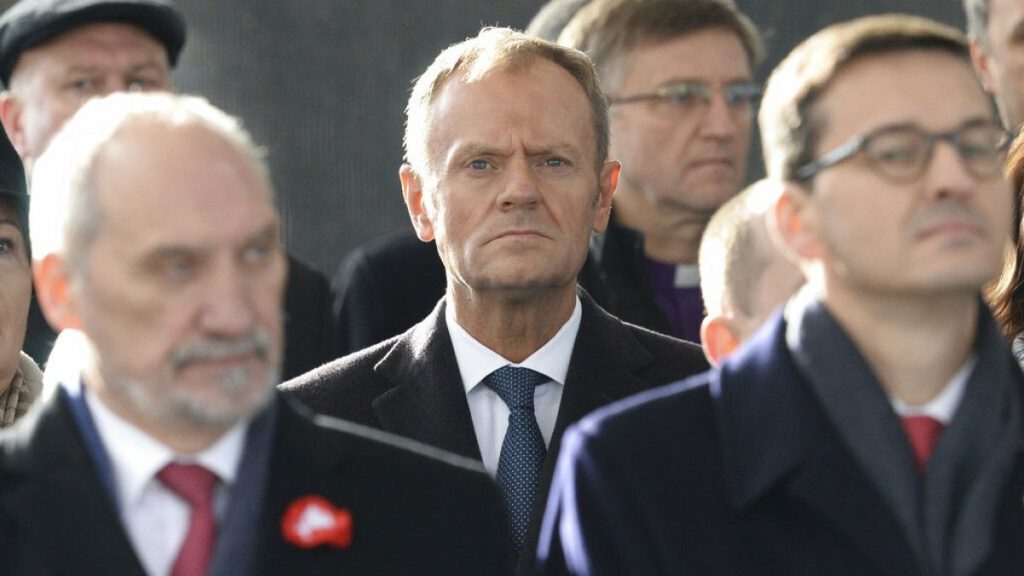The head of a special commission investigating Russian and Belarusian interference in Poland has referred former defense minister Antoni Macierewicz to prosecutors for impairing Poland’s defense capabilities. General Jaroslaw Stróżyk, who chairs the Polish Military Counterintelligence Service, accused Macierewicz of cancelling important defense projects, including tanker aircraft for Poland’s fleet of F-16 fighter jets. These decisions were made without expert analysis or consultations, reducing Poland’s airborne time and defense capabilities. The commission’s investigation also uncovered the closure of 10 regional bureaus of Poland’s special services and intelligence in 2017, further harming the country’s operations.
The commission’s findings suggest that Macierewicz’s decision-making was guided by a personal aversion to the European Union, which they label as a form of “diplomatic treason.” Macierewicz, a member of the national-conservative Law and Justice Party (PiS), has denied any wrongdoing and called the report “absurd.” The wider PiS government, which was voted out in 2023, was also criticized for ignoring US warnings about Russia’s intentions to invade Ukraine and failing to make pro-defense decisions. There are suggestions that the office of President Andrzej Duda, also from the PiS, may be withholding information relevant to the Macierewicz investigation, according to Polish media reports.
Prime Minister Donald Tusk established the special commission to investigate Russian and Belarusian influence on Polish politics over the past two decades. Tusk, known for his pro-EU stance, emphasized the importance of addressing hybrid attacks from Russia and Belarus, including cyberattacks, sabotage, and the manufacturing of migrant pressure along the Poland-Belarus border. The commission’s research, which included reviewing classified documents, indicated direct influence by Russia on Poland’s defense decisions, although specific details were not provided. The government is viewing the situation as a matter of national security, particularly with Poland’s strong support for Ukraine amidst ongoing conflicts with Russia.
Foreign Minister Radosław Sikorski publicly criticized Macierewicz in response to the commission’s findings, stating that he should have been in prison for his actions over the past 30 years. Sikorski accused Macierewicz of potentially being a Russian agent based on his detrimental impact on Poland’s defense capabilities. The commission intends to refer Macierewicz to prosecutors for further action, allowing them to determine the appropriate legal steps to address the issue. Despite Macierewicz’s denial of any wrongdoing, the commission’s conclusions highlight a pattern of decisions that have weakened Poland’s defense readiness and intelligence operations, potentially exposing the country to heightened security risks.
The investigation into Macierewicz’s actions sheds light on the broader political landscape in Poland, where tensions have frequently arisen between the PiS government and European Union officials. The commission’s report accuses Macierewicz of making decisions based on personal biases against EU partners, highlighting a diplomatic strain that may have influenced critical defense choices. The clash between Poland’s national-conservative leadership and EU institutions has been a longstanding issue, with disagreements over the rule of law and judicial independence exacerbating the rift. The commission’s scrutiny of Macierewicz’s tenure as defense minister underscores the complexities of navigating geopolitical challenges while balancing domestic political agendas. These findings could have far-reaching implications for Poland’s defense strategy and relations with international partners in the aftermath of the PiS government’s tenure.















